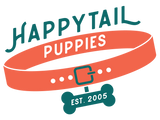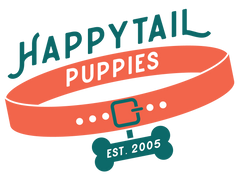How Much Does a Sheepadoodle Cost?
Sheepadoodles, a Poodle-Old English Sheepdog mix, offer a blend of temperament, intelligence, and low-shedding coats. Learn about their cost.
Sheepadoodles in the society of pet parents project an intricately created breed showcasing a mix of temperament, intelligence, and physical appeal. Known widely as the designer breed, this cute little pup is developed through purposeful crossbreeding of a Poodle and an Old English Sheepdog. They offer a distinctive blend of emotional sensitivity, low-shedding coats, and adaptability across diverse living spaces.
Several prospective owners today search for transparency in terms of the financial commitment needed to raise a Sheepadoodle, given the breed's growing fame throughout the United States. The growing keenness has imposed a huge focus on the comprehensive viewpoint of the price of Sheepadoodles.
Key Factors Influencing Sheepadoodle Cost
Here are a couple of vital attributes that impact the complete breakdown for the Sheepadoodle costs that you should consider adding to add into your life:
- Breed Generation: F1 (first-gen) with high traits of Sheepdog's traits and F1b (backcrossed) are the Sheepadoodles, with a high percentage of Poodle's genetics, have varied price points based on health profiles and coat predictability.
- Breeder Reputation: Ethical breeders today invest in vaccinations, genetic testing, and early socialization. Although the pups are on the expensive side, they lead to fewer long-term veterinary expenses.
- Geographic Location: This breed is often priced more in high-demand areas or by limited breeders. Urban areas often have a higher price range than rural areas.
- Coat Type & Color: Puppies with unique color patterns or rare markings, such as the phantom or merle, often fetch higher prices.
- Health Screening & Guarantees: Pups that arrive with complete vet records and transparent health guarantees reflect the costs associated with the preventative care.
- Size Variations: Miniature, standard, or toy Sheepadoodles have varied market values, considering their breeding difficulty and the demand associated with them.
How Much Does a Sheepadoodle Cost: The Complete Breakdown
The comprehensive breakdown of the Sheepadoodle costs includes more than just the purchase factor. Numerous elements contribute to the final figure, and breaking them down can help you understand the complete investment involved.
The Cost of Buying a Sheepadoodle Puppy
The average cost of buying a Sheepadoodle puppy is between 1,995 and 2,225 USD. Still, these prices may vary according to size, coat variety, breeder quality, and even geographical location. Breeders also tend to charge more for puppies that bear special markings, especially when such puppies have just stepped out of champion or health-tested bloodlines.
The price tags of Mini Sheepadoodles are usually higher as they are understood to have special breeding issues. When compared with the cost of a Poodle Puppy, the venerable status of a Sheepadoodle is secured by its hybrid, which links the features of both parent races and necessitates the intervention of the breeder to change the characteristics to make them sustainable.
The best breeders incorporate multiple aspects into their costs, including vet examination, vaccinations, microchipping, and early socialization. These additional services aid in curbing future costs and in providing a smoother transition of the pup into its new home. According to the AVMA, puppies that get proper vet care at an earlier stage in life live healthier and longer lives.
Miniature Sheepadoodles Carry a Premium Price Tag
The Miniature Sheepadoodle tends to be more costly than its standard or medium sizes. This is more so because of the special breeding needed to produce smaller and healthier puppies without necessarily sacrificing the quality of the coat or the temperament. Other factors that cost more are that breeding the miniature versions requires complex genetic planning and results in smaller litters.
The process is often identical to the selective breeding practices used to create small dog breeds such as Sheepadoodles, like Mini Bernedoodles, which command a premium price in this market.
The smaller versions of Sheepadoodles are prominent among apartment owners and urban dwellers, which increases the demand and improves the value. As noted by the American Kennel Club, compact breeds or mixes that adapt well to city life are among the highly demanded pets in the United States, contributing to the higher price points for the mini varieties.
Adoption Offers a Budget-Friendly Option
Adoption helps to reduce the upfront fees, which range from $300 to $600. These costs generally include vaccinations, spaying/neutering, and, at times, behavioral assessments. It is the ideal path for experienced dog owners who stay prepared for the unpredictability associated with rescue dogs.
The adoptable Sheepadoodles are often found through the breed-specific rescues or the broader organizations that house the other small dog breeds, like a Cavapoo. It is through the more cost-effective adoption, with some adopted puppies who might need medical treatment or expert training to address past neglect or trauma. It helps to increase the long-term costs to help the new owners, who should assess the financial or emotional implications before selecting this route.
Monthly Ownership Expenses Accumulate Quickly
Sheepadoodle care requires a consistent monthly expenditure. Premium dog food is customized to their dietary requirements, which costs about $50 each month. Grooming is extremely important for the non-shedding coats and costs around $100 each session, performed every 6 to 8 weeks. The coats match closely with maintaining similar dog breeds like the Miniature Bernedoodle, where the coat gets cared for and maintained, which determines an added expense related to the Sheepadoodles.
Medications, routine care, and occasional vet visits are yet another expense that costs around $30 to $60 each month. Other recurring costs include treats, toys, pet insurance, and grooming supplies. Over time, these monthly expenses exceed the initial purchase cost and should be factored into an enduring financial plan.
Ethical Breeding Practices Affect the Price
Breeders following ethical breeding standards invest significantly in the well-being and health of both the parent dogs and the puppies. You can expect health documentation, clarity, vaccination records, and, at times, genetic testing. Responsible breeding adds to the costs, ensuring a more predictable and healthier pet.
The process is more challenging than it is for less specialized small dog breeds, like those bred for affordability. Cavapoo puppies cost less due to their widespread availability and easier breeding logistics.
The overall buying process includes waitlists, deposits, and contracts outlining the owner's responsibilities. Breeders often stay involved even after the sale, offering constant advice and support, improving the overall experience with puppy ownership, and adding to the value that passes the transaction.
Designer Doodle Breeds Show Variable Market Prices
Among the designer breeds, the Sheepadoodles are generally more expensive compared to the Goldendoodles or other Poodle varieties. One of the critical reasons is that the Old English Sheepadogs are less used in the breeding programs creating some rare breeds. Their loyal, calm nature adds to their value and popularity.
Their adaptable personalities and hypoallergenic coats make them the top option for allergy sufferers and their families alike. These notable traits, combined with the limited availability, push the cost of Sheepadoodle higher than that of any other Doodle variety.
Additional Ownership Costs Can Be Unexpected
New pet parents often overlook the early expenses, like supplies and training. A quality toy, crate, grooming tools, leash sets, and food bowls cost several hundred dollars. Several first-time owners are astounded by how quickly these essentials start adding up.
Professional training is yet another cost pet owners overlook. While group classes might appear affordable, private sessions for behavioral issues are expensive. Few breeds benefit from specialized training due to anxiety or herding instincts, adding to future investments.
Grooming Is a Recurring Financial Commitment
Sheepadoodle are thick-coated, wavy, or curly-looking dogs that must be groomed. Failure to make grooming appointments causes skin problems, fur matting, or pulling out of the hair around highly sensitive areas. Most owners bring their dogs there between 6 and 8 weeks, and the average price is approximately 80 dollars per visit.
Home grooming will be economical in the long term, but it needs professional tools and the readiness to study some proper methods. Proper coat care earlier would not only prevent some health problems but also contribute to your dog's hygiene and comfort. Grooming is not special anymore, at least not to the Mini Sheepadoodles, because it is one of their main needs.
Training Enhances Behavior and Reduces Future Costs
Training this Sheepadoodle at an earlier age can greatly improve its behavior and avoid behavioral problems, which occur in very highly intelligent breeds. Obedience lessons are provided in a group to allow proper structure and socialization, whereas personal training focuses on an individual's needs (e.g., excessive barking or separation anxiety.
Additional training to keep dogs livelier through scent work or agility makes dogs even more curious about life and makes their connection with their owners even stronger. When investing money and time into adequate training, the likelihood of destructive behavior is reduced, and expenses of rehoming, destruction, or behavioral rehabilitation are avoided.
Strong Lineage Is a Marker of Health and Value
Puppies with proven bloodlines generally cost more; however, they arrive with huge predictability regarding health and temperament. The documentation behind parents' health clearances, genetic testing, and earlier litter outcomes can help assure new pet parents of what to expect.
Breeders offering top-notch lineage start investing in medical screening, carefully matching the pairs, and avoiding hereditary health issues. The investment leads to higher upfront costs, fewer health complications, and a sound experience for the dog and the family.
Spay and Neuter Procedures Add to Ownership Costs
Neutering or spaying is the standard medical procedure often required by shelters and breeders. It generally costs between $200 and $500, depending on the size and age of the dog and the local vet's pricing. A few breeders include this in their initial purchase costs.
Delaying the process leads to extensive behavioral challenges or health complications that lead to additional expenses. Taking care sooner can help prevent future issues and is considered part of the standard financial commitment to dog ownership.
Conclusion
Sheepadoodle are an amazing combination of temperament, smarts, and good looks, and, as a pet, they require serious consideration. It is important to plan between the initial expense and future care. Taking into consideration all such aspects as food, grooming, and training will provide an easier process for both the owner and the pet, whether the way is adoption or breeder, careful budgeting and caring ownership result in a healthy, enjoyable relationship that creates an attachment of a lifetime.


